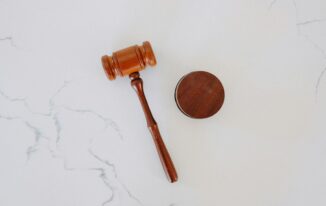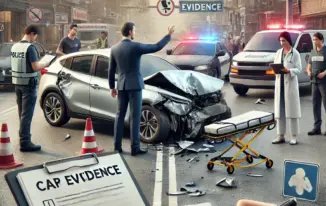Have you ever been injured in an accident?
If so, you may wonder if you have a personal injury case. Experienced personal injury attorneys can help you determine if you have a valid claim and guide you through the legal process.
Although taking your personal injury case to court might seem viable, there are some factors you should consider. In this article, we will provide essential information to help you make informed decisions about your personal injury claim.
Regardless of whether you’re dealing with a personal injury case or lawsuit, it’s essential to consult the experienced personal injury attorneys at Franklin D. Azar & Associates. They have been around since 1987 fighting insurance companies and winning fair compensation for accident victims. The firm’s founder, Franklin D. Azar, is considered one of Colorado’s best plaintiff’s attorneys.
The sections below discuss some factors you should consider before opting for a lawsuit. Read on.
- Court Cases Take Time
About 96% of personal injury cases are settled outside of court.
There is a reason for this. Out-of-court settlement negotiations are quick and easy. Victims can receive compensation and move on with their lives.
Court cases take time. There are numerous processes that take a while to complete. Some cases even drag for years. If this sounds like a nightmare to you, then a court case is not for you.
However, there are instances where the insurance company may not offer very low compensation or the act involved gross recklessness. In such instances, a court case is the right choice.
- Strength of the Evidence
To build a compelling personal injury case, gathering and preserving evidence supporting your claim is crucial. This evidence can be used to prove negligence on the defendant’s part and the extent of your damages.
Some essential types of evidence include:
- Medical records: These documents can document your injuries, treatment, and prognosis.
- Photographs: Pictures of the accident scene, your injuries, and any damaged property can be valuable evidence.
- Witness statements: Statements from individuals who witnessed the accident or your injuries can provide firsthand accounts of the events.
- Expert opinions: Experts in various fields, such as medical or accident reconstruction specialists, can provide valuable insights and testimony.
By diligently gathering and preserving evidence, you can strengthen your case and increase your chances of a favorable outcome. There is no point in taking your case to court if you don’t have sufficient evidence.
- Choose the Right Attorney
Selecting a qualified and experienced personal injury attorney is critical. A skilled attorney can guide you through the legal process, protect your rights, negotiate a fair settlement, or represent you in court if necessary.
When choosing an attorney, consider the following factors:
- Track record: Look for an attorney with a proven record of success in handling personal injury cases.
- Specialization: An attorney specializing in personal injury law will have the expertise and knowledge to handle your case effectively.
- Communication skills: Effective communication is essential for a successful attorney-client relationship. Choose an attorney who is responsive, approachable, and keeps you informed throughout the process.
It’s often beneficial to consult multiple attorneys before making a decision. This will allow you to compare their experience, fees, and approaches to your case.
Choosing an attorney without trial experience can be disastrous to your personal injury lawsuit. So make sure the attorney you’re choosing has represented accident victims in court.
- Being Prepared for the Discovery Process
The discovery process is a crucial phase of personal injury litigation. Both parties exchange information and evidence to build their cases during this time. This can include interrogatories, depositions, and document production.
Being prepared for the discovery process is essential. Work closely with your attorney to gather and organize relevant documents and information. Be honest in your responses. By cooperating with your attorney and following their guidance, you can effectively navigate the discovery process and strengthen your case.
5. Consider Alternative Dispute Resolution
In some cases, alternative dispute resolution (ADR) can be a more efficient and cost-effective way to resolve a personal injury claim. ADR methods, such as mediation and arbitration, involve a neutral third party who helps the parties reach a settlement agreement.
While litigation can be time-consuming and stressful, ADR can offer a more amicable and flexible approach. It’s important to discuss the potential benefits of ADR with your attorney and determine if it’s a suitable option for your case.


